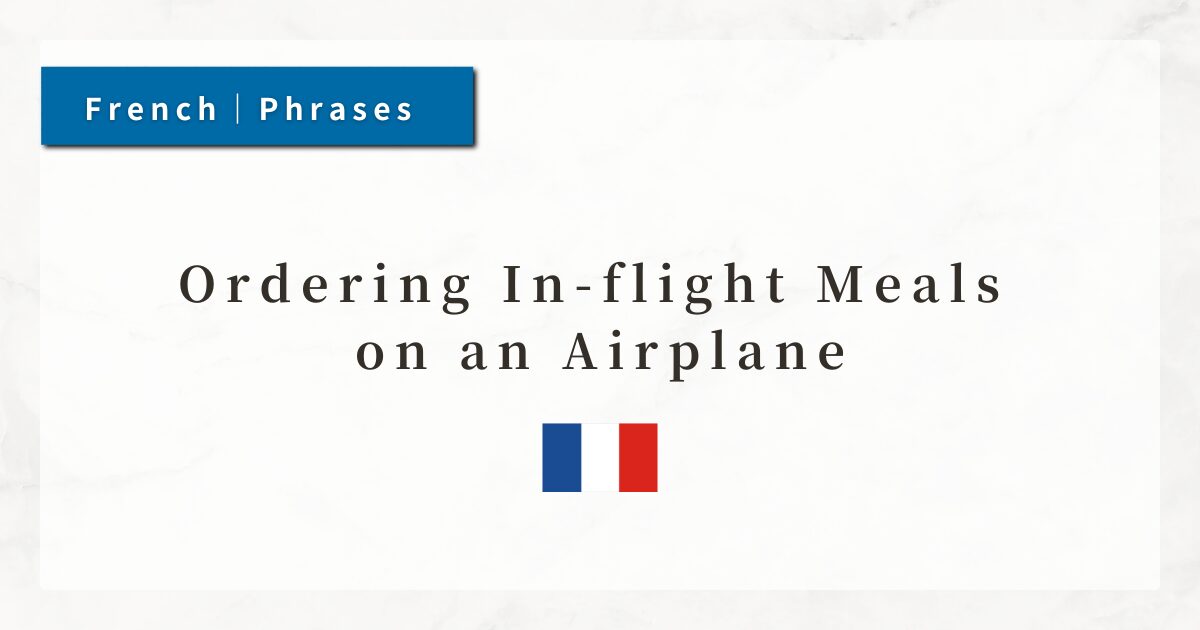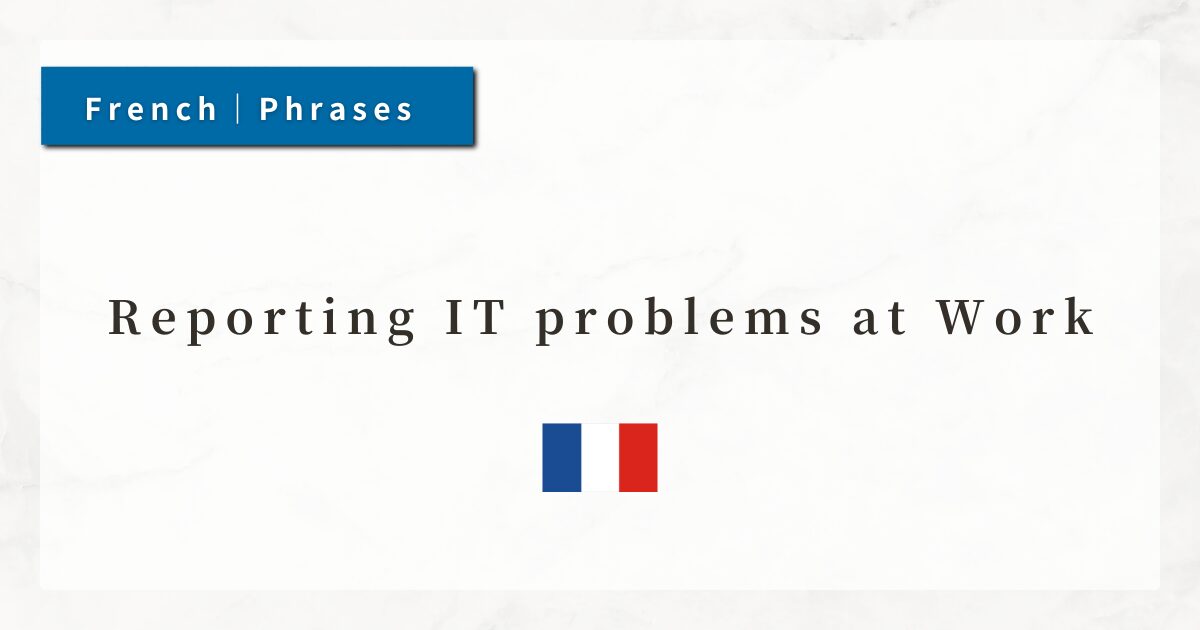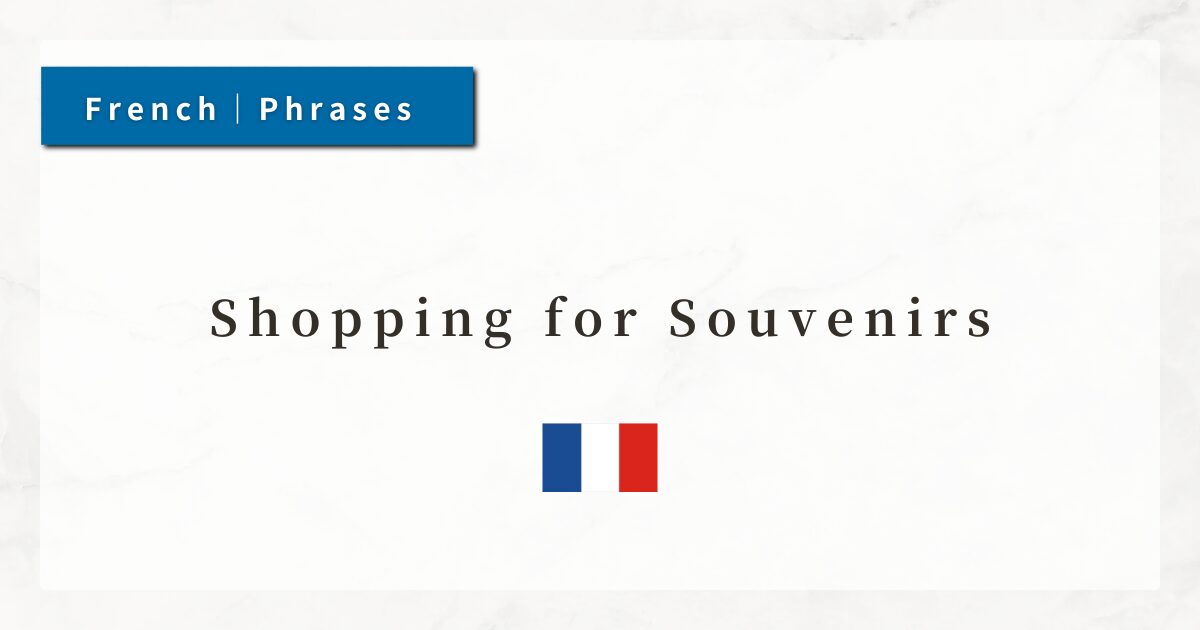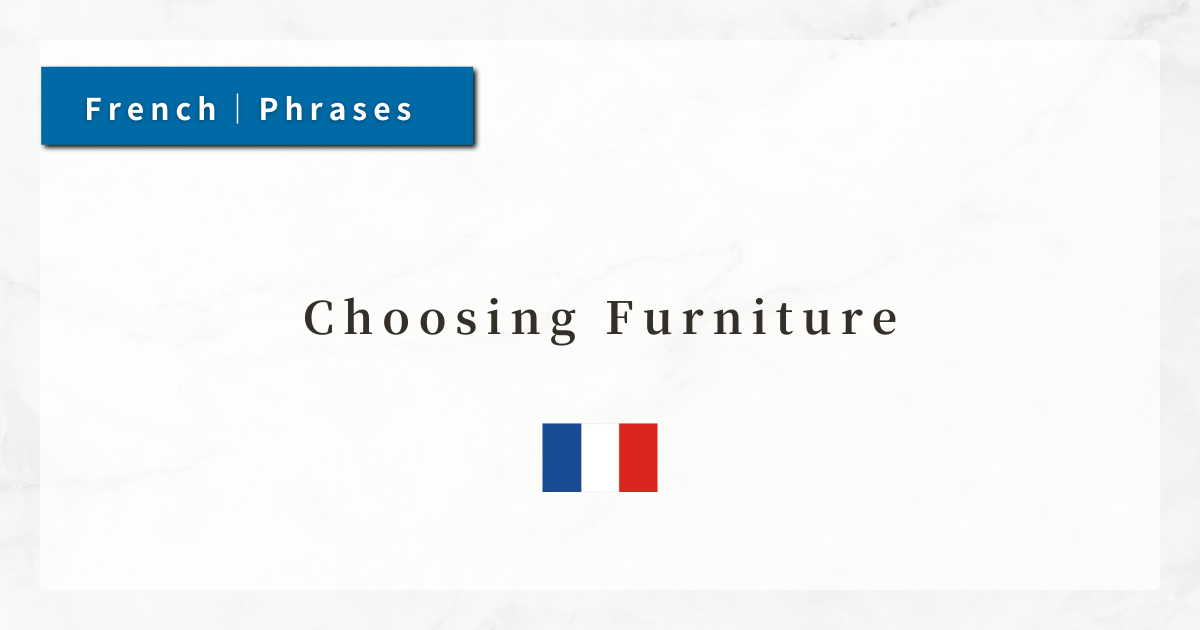#23 Ordering In-flight Meals on an Airplane|French Phrases for Making Requests

On long-haul flights, passengers often need to communicate with cabin crew to order meals.
When traveling with a French-speaking airline, the ordering and interaction may take place in French.
In this lesson, I will introduce essential French phrases for ordering meals and drinks on board, along with some related grammar points.
Dialogue

Vous désirez du poulet ou du poisson ?
(Would you like chicken or fish?)

Je prendrai le poulet, s’il vous plaît.
(I’ll have the chicken, please.)

Et comme boisson ?
(And to drink?)

De l’eau, s’il vous plaît.
(Water, please.)

Bien sûr, je vous apporte ça tout de suite.
(Of course. I’ll bring that right away.)
1. The Standard Expression “I’ll have …”
The most common expression when ordering meals on board is: “Je prendrai …” (I’ll have …).
- Je prendrai le poulet.
(I’ll have the chicken.) - Je prendrai le poisson.
(I’ll have the fish.)
The verb prendre (to take / to have) is widely used when ordering in restaurants or on planes. It is similar to the English expression “I’ll have …”.
- De l’eau, s’il vous plaît.
(Water, please.)
2. Questions Commonly Asked by Cabin Crew
Cabin crew often offer choices when asking passengers.
- Vous désirez du poulet ou du poisson ?
(Would you like chicken or fish?)
The verb désirer means “to desire” and conveys a very polite tone. While it is not frequent in everyday conversation, it is common in service or hospitality contexts.
3. Ordering Drinks
When drinks are served, the crew may ask:
- Et comme boisson ?
(And to drink?)
When ordering drinks, partitive articles are required:
- De l’eau, s’il vous plaît.
(Water, please.) - Un jus d’orange, s’il vous plaît.
(An orange juice, please.) - Du vin rouge, s’il vous plaît.
(Red wine, please.)
Notes on partitive usage:
- de l’eau
→ used before nouns starting with a vowel. - du vin
→ used with masculine nouns. - de la bière
→ used with feminine nouns.
4. The Importance of Politeness
Interactions on board are generally formal, so phrases like “s’il vous plaît” (please) and merci (thank you) are essential.
Cabin crew also frequently use polite responses such as:
- Bien sûr.
(Of course.) - Tout de suite.
(Right away.)
Hearing these responses confirms that the conversation is proceeding smoothly.
5. Special Meal Requests
If you have dietary needs such as vegetarian or special meals, you may use the following expressions:
- Je voudrais un repas végétarien.
(I would like a vegetarian meal.) - Je ne mange pas de viande.
(I don’t eat meat.) - J’ai commandé un repas spécial à l’avance.
(I ordered a special meal in advance.)
Special meals typically need to be requested before boarding. However, knowing these phrases is useful for checking or clarifying during the flight.
Summary
- Vous désirez du poulet ou du poisson ?
→ A standard phrase to offer choices (chicken or fish). Désirer conveys politeness. - Je prendrai …
→ A convenient phrase for ordering; equivalent to English “I’ll have …”. - boisson (drink):
→ Drinks require partitive articles (de l’eau / du vin / de la bière). - s’il vous plaît / merci:
→ Essential polite expressions in formal settings such as flights.




